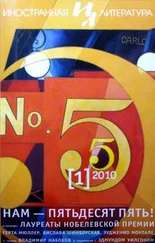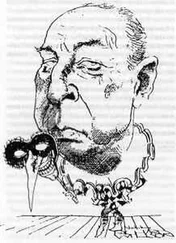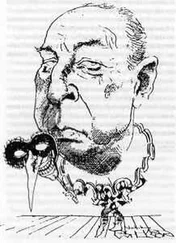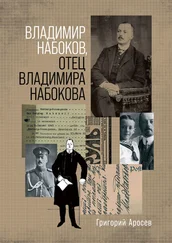Владимир Набоков - Vladimir Nabokov Pnin
Здесь есть возможность читать онлайн «Владимир Набоков - Vladimir Nabokov Pnin» весь текст электронной книги совершенно бесплатно (целиком полную версию без сокращений). В некоторых случаях можно слушать аудио, скачать через торрент в формате fb2 и присутствует краткое содержание. Жанр: Классическая проза, на английском языке. Описание произведения, (предисловие) а так же отзывы посетителей доступны на портале библиотеки ЛибКат.
- Название:Vladimir Nabokov Pnin
- Автор:
- Жанр:
- Год:неизвестен
- ISBN:нет данных
- Рейтинг книги:4 / 5. Голосов: 2
-
Избранное:Добавить в избранное
- Отзывы:
-
Ваша оценка:
- 80
- 1
- 2
- 3
- 4
- 5
Vladimir Nabokov Pnin: краткое содержание, описание и аннотация
Предлагаем к чтению аннотацию, описание, краткое содержание или предисловие (зависит от того, что написал сам автор книги «Vladimir Nabokov Pnin»). Если вы не нашли необходимую информацию о книге — напишите в комментариях, мы постараемся отыскать её.
Vladimir Nabokov Pnin — читать онлайн бесплатно полную книгу (весь текст) целиком
Ниже представлен текст книги, разбитый по страницам. Система сохранения места последней прочитанной страницы, позволяет с удобством читать онлайн бесплатно книгу «Vladimir Nabokov Pnin», без необходимости каждый раз заново искать на чём Вы остановились. Поставьте закладку, и сможете в любой момент перейти на страницу, на которой закончили чтение.
Интервал:
Закладка:
'There still remains Advanced French,' murmured Hagen.
'Carolina Slavski and I take care of that,' answered Blorenge.
4
For Pnin, who was totally unaware of his protector's woes, the new Fall Term began particularly well: he had never had so few students to bother about, or so much time for his own research. This research had long entered the charmed stage when the quest overrides the goal, and a new organism is formed, the parasite so to speak of the ripening fruit. Pnin averted his mental gaze from the end of his work, which was so clearly in sight that one could make out the rocket of an asterisk, the flare of a 'sic!' This line of land was to be shunned as the doom of everything that determined the rapture of endless approximation. Index cards were gradually loading a shoe box with their compact weight. The collation of two legends; a precious detail in manners or dress; a reference checked and found to be falsified by incompetence, carelessness, or fraud; the spine thrill of a felicitous guess; and all the innumerable triumphs of bezkorпstnпy (disinterested, devoted) scholarship--this had corrupted Pnin, this had made of him a happy, footnote-drugged maniac who disturbs the book mites in a dull volume, a foot thick, to find in it a reference to an even duller one. And on another, more human, plane there was the little brick house that he had rented on Todd Road, at the comer of Cliff Avenue.
It had lodged the family of the late Martin Sheppard, an uncle of Pnin's previous landlord in Creek Street and for many years the caretaker of the Todd property, which the town of Waindell had now acquired for the purpose of turning its rambling mansion into a modem nursing home. Ivy and spruce muffled its locked gate, whose top Pnin could see on the far side of Cliff A venue from a north window of his new home. This avenue was the crossbar of a T, in the left crotch of which he dwelt. Opposite the front of his house, immediately across Todd Road (the upright of the T), old elms screened the sandy shoulder of its patched-up asphalt from a cornfield east of it, while along its west side a regiment of young fir trees, identical upstarts, walked, campusward, behind a fence, for almost the whole distance to the next residence--the Varsity Football Coach's magnified cigar box; which stood half a mile south from Pnin's house.
The sense of living in a discrete building all by himself was to Pnin something singularly delightful and amazingly satisfying to a weary old want of his innermost self, battered and stunned by thirty-five years of homelessness. One of the sweetest things about the place was the silence--angelic, rural, and perfectly secure, thus in blissful contrast to the persistent cacophonies that had surrounded him from six sides in the rented rooms of his former habitations. And the tiny house was so spacious! With grateful surprise, Pnin thought that had there been no Russian Revolution, no exodus, no expatriation in France, no naturalization in America, everything--at the best, at the best, Timofey!--would have been much the same: a professorship in Kharkov or Kazan, a suburban house such as this, old books within, late blooms without. It was--to be more precise--a two-storey house of cherry-red brick, with white shutters and a shingle roof. The green plat on which it stood had a frontage of about fifty arshins and was limited at the back by a vertical stretch of mossy cliff with tawny shrubs on its crest. A rudimentary driveway along the south side of the house led to a small whitewashed garage for the poor man's car Pnin owned. A curious basketlike net, somewhat like a glorified billiard pocket--lacking, however, a bottom--was suspended for some reason above the garage door, upon the white of which it cast a shadow as distinct as its own weave but larger and in a bluer tone. Pheasants visited the weedy ground between the garden and the cliff. Lilacs--those Russian garden graces, to whose spring-time splendour, all honey and hum, my poor Pnin greatly looked forward--crowded in sapless ranks along one wall of the house. And a tall deciduous tree, which Pnin, a birch-lime-willow-aspen-poplar-oak man, was unable to identify, cast its large, heart-shaped, rust-coloured leaves and Indian-summer shadows upon the wooden steps of the open porch.
A cranky-looking oil furnace in the basement did its best to send up its weak warm breath through registers in the floors. The kitchen looked healthy and gay, and Pnin had a great time with all kinds of cookware, kettles and pans, toasters and skillets, all of which came with the house. The living-room was scantily and dingily furnished, but had a rather attractive bay harbouring a huge old globe, where Russia was painted a pale blue, with a discoloured or scrubbled patch all over Poland. In a very small dining-room, where Pnin contemplated arranging a buffet supper for his guests, a pair of crystal candlesticks with pendants was responsible in the early mornings for iridescent reflections, which glowed charmingly on the sideboard and reminded my sentimental friend of the stained-glass casements that coloured the sunlight orange and green and violet on the verandas of Russian country houses. A china closet, every time he passed by it, went into a rumbling act that also was somehow familiar from dim back rooms of the past. The second floor consisted of two bedrooms, both of which had been the abode of many small children, with incidental adults. The floors were chafed by tin toys. From the wall of the chamber Pnin decided to sleep in he had untacked a pennant-shaped red cardboard with the enigmatic word 'Cardinals' daubed on it in white; but a tiny rocker for a three-year-old Pnin, painted pink, was allowed to remain in its comer. A disabled sewing machine occupied a passageway leading to the bathroom, where the usual short tub, made for dwarfs by a nation of giants, took as long to fill as the tanks and basins of the arithmetic in Russian school books.
He was now ready to give that party. The living-room had a sofa that could seat three, there were two wing-back chairs, an overstuffed easy chair, a chair with a rush seat, one hassock, and two footstools. All of a sudden he experienced an odd feeling of dissatisfaction as he checked the little list of his guests. It had body but it lacked bouquet. Of course, he was tremendously fond of the Clementses (real people--not like most of the campus dummies), with whom he had had such exhilarating talks in the days when he was their roomer; of course, he felt very grateful to Herman Hagen for many a good turn, such as that raise Hagen had recently arranged; of course, Mrs Hagen was, in Waindell parlance, 'a lovely person'; of course, Mrs Thayer was always so helpful at the library, and her husband had such a soothing capacity for showing how silent a man could be if he strictly avoided comments on the weather. But there was nothing extraordinary, nothing original, about this combination of people, and old Pnin recalled those birthday parties in his boyhood--the half a dozen children invited who were somehow always the same, and the pinching shoes, and the aching temples, and the kind of heavy, unhappy, constraining dullness that would settle on him after all the games had been played and a rowdy cousin had started putting nice new toys to vulgar and stupid uses; and he also recalled the lone buzz in his ears when, in the course of a protracted hide-and-seek routine, after an hour of uncomfortable concealment, he emerged from a dark and stuffy wardrobe in the maid's chamber, only to find that all his playmates had already gone home.
While visiting a famous grocery between Waindellville and Isola, he ran into Betty Bliss, asked her, and she said she still remembered Turgenev's prose poem about roses, with its refrain 'Kak horoshi, kak svezhi (How fair, how fresh)', and would certainly be delighted to come. He asked the celebrated mathematician, Professor Idelson, and his wife, the sculptress, and they said they would come with joy but later telephoned to say they were tremendously sorry--they had overlooked a previous engagement. He asked young Miller, by now an Associate Professor, and Charlotte, his pretty, freckled wife, but it turned out she was on the point of having a baby. He asked old Carrol, the Frieze Hall head janitor, with his son Frank, who had been my friend's only talented student and had written a brilliant doctor's thesis for him on the relationship between Russian, English, and German iambics; but Frank was in the army, and old Carrol confessed that 'the missus and I do not mix much with the profs.' He rang up the residence of President Poore, whom he had once talked to (about improving the curriculum) at a lawn function, until it started to rain, and asked him to come, but President Poore's niece answered that her uncle nowadays' never visits with anybody except a few personal friends,' He was about to give up the notion of enlivening his list, when a perfectly new and really admirable idea occurred to him.
Читать дальшеИнтервал:
Закладка:
Похожие книги на «Vladimir Nabokov Pnin»
Представляем Вашему вниманию похожие книги на «Vladimir Nabokov Pnin» списком для выбора. Мы отобрали схожую по названию и смыслу литературу в надежде предоставить читателям больше вариантов отыскать новые, интересные, ещё непрочитанные произведения.
Обсуждение, отзывы о книге «Vladimir Nabokov Pnin» и просто собственные мнения читателей. Оставьте ваши комментарии, напишите, что Вы думаете о произведении, его смысле или главных героях. Укажите что конкретно понравилось, а что нет, и почему Вы так считаете.










